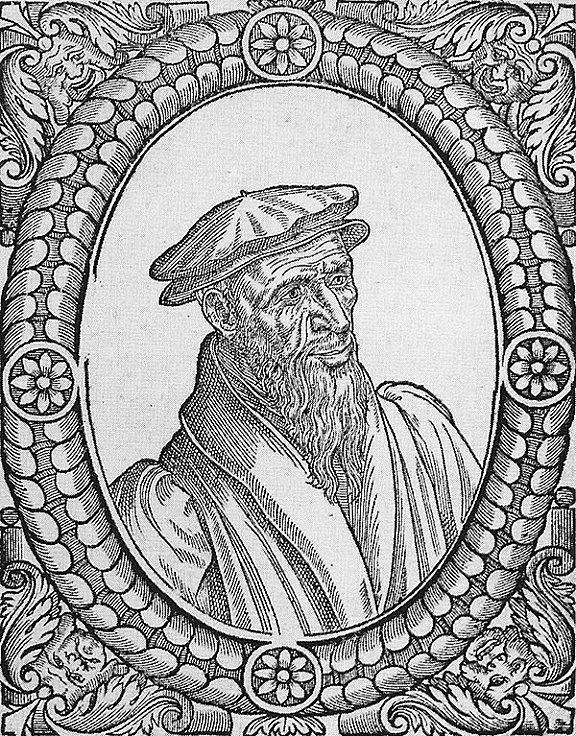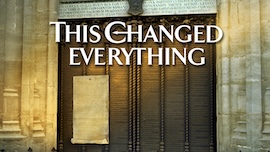William Farel Overturned the Old Order in Geneva

Farel set the Reformation into motion in Geneva and other towns of Switzerland.
WILLIAM FAREL was a fiery Reformation evangelist in Western Switzerland. Born in France in 1489, he converted to Protestant beliefs in part through the teaching of Jacques Lefèvre d’ Étaples, a French philosopher and Biblical scholar. Without formal ordination, Farel immediately began to preach the gospel zealously in Paris and throughout France until persecution drove him to Switzerland. There he continued to preach.
Because of his missionary zeal, Farel often found himself in danger. He received many beatings, threats, and humiliations. No doubt he brought some of this fury on himself by his violent words, for he thundered forth denunciations of priests and of Rome and led others in smashing images in Catholic churches. Yet God honored his efforts, and in Switzerland he founded Reformed churches in the cantons and cities of Neuchâtel, Berne, Geneva, Lasaunne, and Vaud. He inspired many leaders of the Swiss and French Reformations, including John Calvin, Antoine Froment and Pierre Viret.
Farel first visited Geneva with the gospel in October 1532 on his way back from a visit to the Waldenses in Savoy, a Christian group to whom he had promised a translation of the Bible. His first action was to summon scholar Robert Olivetan and command him to undertake the translation job. Then he preached privately, but was seized by the city’s priests and stood in real danger of losing his life. They incited a mob to demand he be drowned in the Rhone river. One member of the mob even fired a gun at Farel at point blank range, and though there was a flash, there was no discharge of a bullet. The next day, the magistrates expelled Farel from the city as the mob howled for his blood.
However, the indomitable Farel sent 22-year-old Antoine Fromert to start a grammar school in Geneva and introduce the Gospel to the pupils. It was not long before Geneva had a sizable group of Protestants.
In 1534 Farel returned to Geneva. For weeks, he and his associates had to content themselves with preaching out of doors, in barns, or in private homes. All the churches of the city were closed to him. His first chance to preach in a church came on this day, 1 March 1534 when the bell of the Franciscan chapel tolled mysteriously and a crowd of Farel’s supporters rushed him to the church. In about an hour it was filled to capacity with both Catholics and reformers and he preached the gospel. Investigators could not identify who had rung the bell. Other churches later opened to Farel as more and more Genevans embraced Reformation teaching.
The city was soon divided between those who wanted the new doctrine and those who clung to Catholicism. Momentum, however, was on Farel’s side. Many desired reform because they saw the movement as a way to secure Geneva’s ancient rights, rights that were under attack by the Duke of Savoy and Geneva’s self-exiled bishop Pierre Baume. Geneva had sacrificed much for these rights over the previous century and was not about to relinquish them without a struggle.
After many ups and downs, Geneva became a Protestant city, the “Rome” of Calvinism, where reformers such as John Knox of Scotland trained. Its council expelled Farel, however, and he settled in Neuchâtel where he married a young woman when he was 69 years old. He remained vigorous until his death in 1565.
—Dan Graves
------------------------
For more on the Reformation and counter-Reformation consider This Changed Everything
(This Changed Everything can be purchased at Vision Video)
Also, consult the Reformation set of nine DVDs
Christian History magazine's Reformation set
or watch more free videos about the Reformation and reformers at RedeemTV.com






